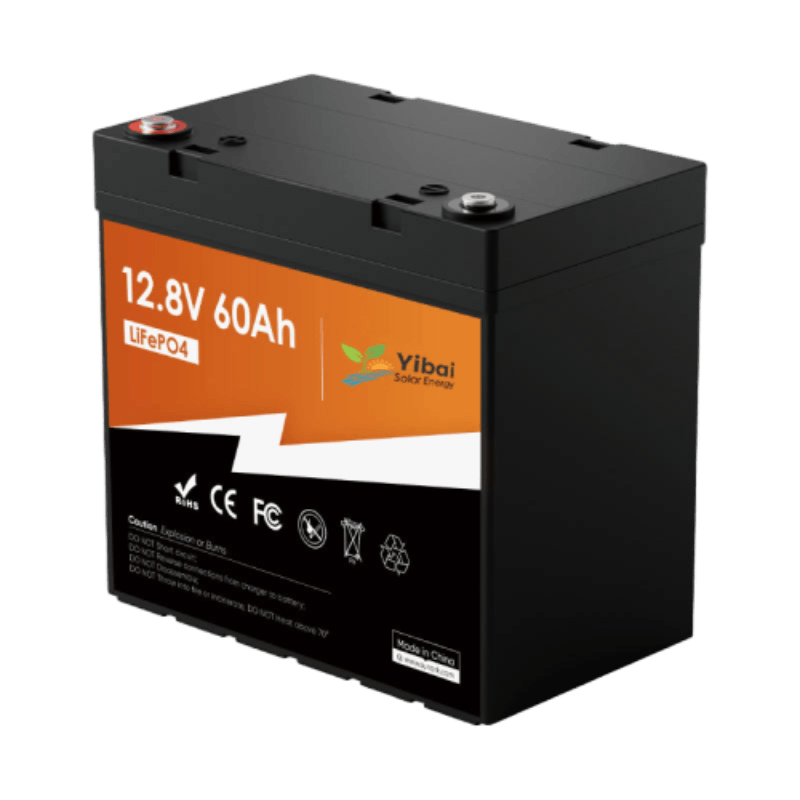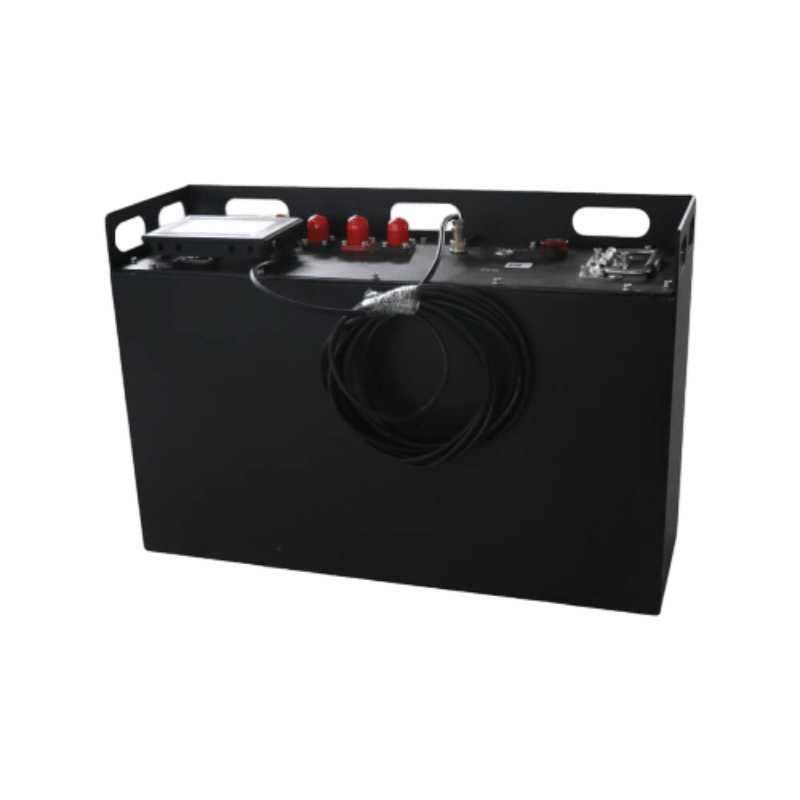In today’s fast-paced warehousing and logistics industries, equipment uptime and efficiency are critical. One innovation that’s significantly boosting productivity is the Lithium Electric Pallet Jack—a modern, powerful upgrade over traditional models that use lead-acid batteries. These lithium-powered pallet jacks are not only faster and more efficient, but they also last longer and require almost no maintenance.
But to unlock their full potential, warehouse managers must understand how to manage these lithium batteries efficiently. With the right energy management strategies, businesses can maximize the performance of their Lithium Electric Pallet Jack Batteries, reduce costs, and extend battery lifespan.
Let’s explore how you can make the most out of your investment with Yibai lithium batteries.
1. Why Lithium Batteries Outperform Lead-Acid Batteries
Before diving into energy management techniques, it’s important to understand why lithium batteries are increasingly preferred in electric pallet jacks.
a. Extended Lifespan
A typical Pile au lithium Yibai provides more than 3,500 charge cycles, while a traditional lead-acid battery lasts only 500 to 1,000 cycles. This means less frequent battery replacements and lower total cost of ownership.
b. Fast and Flexible Charging
Lithium batteries support opportunity charging, meaning they can be partially charged during breaks or downtime without damaging the battery. This helps to reduce downtime and keeps operations moving efficiently.
c. Lightweight Design
Lithium batteries are typically 30%-50% lighter than their lead-acid counterparts. This not only reduces the strain on your equipment but also improves energy efficiency and speed.
d. Maintenance-Free Operation
Unlike lead-acid batteries that require regular watering, cleaning, and equalization charging, Yibai lithium batteries are completely maintenance-free.
e. High Energy Efficiency
With an energy conversion efficiency above 95%, lithium pallet jack batteries waste very little energy during operation and charging. This results in lower electricity costs and more eco-friendly operations.
2. Efficient Energy Management Strategies
Now that you understand the benefits, let’s break down the best practices for managing your lithium pallet jack batteries effectively.
(1) Optimize Charging Practices
• Opportunity Charging
Use short breaks, lunch hours, or shift changes to give your lithium batteries a quick charge. This avoids deep discharges, which can accelerate wear.
Tip: Charging the battery when it’s between 20%–40% helps maintain its health.
• Avoid Overcharging
Unlike lead-acid batteries, batteries lithium-ion do not benefit from being fully charged to 100% each time. Keeping them around 80%-90% charge can reduce degradation et extend the lifespan.
• Use Smart Chargers
Make sure you’re using a smart charger that is compatible with the battery’s Battery Management System (BMS). This ensures the battery is being charged safely and optimally.
(2) Smart Operational Planning
• Load Management
Do not overload the pallet jack. Overloading puts unnecessary pressure on the battery, leading to faster drain and heat buildup.
• Task Scheduling
Distribute workload evenly throughout the day. Avoid stacking high-intensity tasks back-to-back. This strategy helps in avoiding overheating and keeps battery stress low.
• Maintain Temperature Range
Operate your equipment within the optimal temperature range (0°C to 45°C). Extreme cold or heat can negatively affect battery performance and lifespan.
(3) Regular Maintenance and Monitoring
Even though lithium batteries are largely maintenance-free, some proactive steps can go a long way.
• Monitor Battery Health (SOH)
Use the Système de gestion de la batterie to check the State of Health (SOH). Keep an eye on voltage levels, temperature, and charging cycles. Early detection of issues ensures better performance and avoids sudden failures.
• Clean and Store Properly
Keep the battery dry and clean. When not in use for extended periods, store at 40%-60% charge in a cool, dry location.
• Firmware Updates
Ensure that your BMS firmware is updated regularly. Updates can improve battery performance through enhanced charging algorithms.
(4) Sustainability and End-of-Life Use
• Second-Life Applications
After retirement from pallet jack use, Yibai lithium batteries can be repurposed in energy storage systems for warehouses or offices.
• Proper Recycling
When the battery is no longer usable, work with a certified recycler to ensure environmentally responsible disposal. Lithium batteries contain valuable materials that can be recovered and reused.
3. How Yibai Lithium Supports Cold Chain Logistics
If your warehouse involves cold storage or temperature-controlled logistics, then lithium-ion technology is an even bigger asset.
Unlike lead-acid batteries, Yibai lithium batteries maintain high performance in cold environments. They are equipped with internal heaters et advanced thermal management, ensuring smooth operation even in -20°C conditions.
For cold chain operations—especially in the food, beverage, and pharmaceutical sectors—this means zero downtime, reduced risk of spoilage, and consistent power delivery.
Témoignages de clients

FAQs About Custom Rechargeable Batteries
How long does a Yibai lithium pallet jack battery last?
Typically, over 3,500 cycles, which translates to 5–7 years of daily use depending on operational intensity.
Can I use a lithium battery in cold storage environments?
Yes! Yibai lithium batteries are designed to operate efficiently in cold temperatures and even include thermal management features.
Do lithium batteries need a special charger?
Yes. Always use a smart charger that’s compatible with the battery’s BMS to ensure safety and longevity.
How should I store lithium batteries when not in use?
Store them at 40%-60% charge in a cool, dry place. Avoid exposing them to direct sunlight or moisture.
Are lithium batteries environmentally friendly?
Absolutely. They are more energy-efficient, longer-lasting, and recyclable, making them a better eco-conscious choice than lead-acid batteries.
Efficient energy management is not just about extending battery life—it’s about boosting operational productivity, cutting costs, and ensuring reliability. By adopting the strategies outlined in this article—smart charging, intelligent scheduling, routine monitoring, and sustainability efforts—you can make the most of your Yibai lithium electric pallet jack batteries.
Whether you’re operating a large fulfillment center or a compact distribution hub, energy efficiency is the foundation of smooth and cost-effective logistics. And with Yibai lithium by your side, you can be sure your pallet jacks are powered for the future.
If you’re ready to upgrade your fleet with long-lasting, low-maintenance, and energy-efficient lithium batteries, talk to the experts at Yibai lithium today. Let us help you power up your warehouse with confidence!

